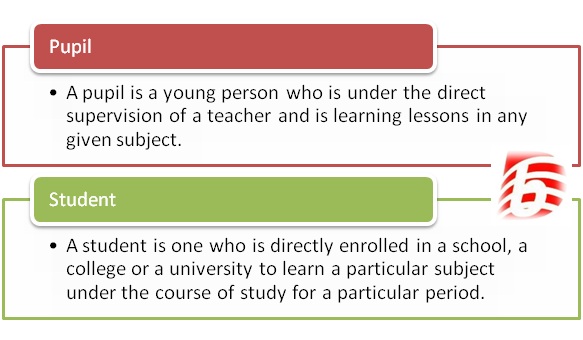Pupil vs Student
Pupil and student are two words in the English language that are often considered interchangeable, even when they are not. It is important to understand the difference between these terms in terms of their connotations. Both pupil and student have their origins in late Middle English. Student has derivatives such as studentship and studenty, while pupil does not have any derivatives. Let’s further examine the difference between pupil and student.
What does Pupil mean?
A pupil refers to a young person who is under the direct supervision of a teacher and is learning lessons in any given subject. The teacher can be from a school or a private tutor. The Oxford English Dictionary defines pupil as “a person who is taught by another, especially a schoolchild or student in relation to a teacher.” A pupil may be under the direct supervision of a teacher due to being a youth or because of specialization in a particular branch of study. The word pupil is not used in a figurative sense, unlike the word student.
What does Student mean?
A student is someone who is directly enrolled in a school, college, or university to learn a particular subject under a course of study for a specific period. This is the main difference between a pupil and a student. The distinction shows that all students are pupils when they come under the supervision of a teacher in the school. Thus, the word pupil can be considered a subset of the word student. The word student is sometimes used in a figurative sense, indicating someone who has devoted attention and more time to a particular problem, art, or sport, as in the expression “a good student of the game.”
Key Takeaways
- A pupil is a young person under the direct supervision of a teacher, while a student is directly enrolled in a school, college, or university to learn a particular subject.
- All students are pupils when under the supervision of a teacher, making the word pupil a subset of the word student.
- The word student can be used in a figurative sense, while the word pupil cannot.
